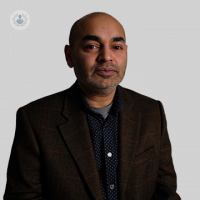How do antidepressants work?
Written in association with:Read this article to find out how antidepressants work, as leading Luton-based consultant psychiatrist, Dr Iqbal Mohiuddin, provides a comprehensive overview.

What are antidepressants, and how do they work?
Antidepressants are a class of medications primarily used to treat depression, anxiety disorders, and other mood-related conditions. They have been a cornerstone in psychiatric treatment for decades, helping millions of individuals manage their symptoms and improve their quality of life.
Types
There are several types of antidepressants, each working through different mechanisms to balance chemicals in the brain called neurotransmitters, which affect mood and emotion. The most commonly prescribed types include Selective Serotonin Reuptake Inhibitors (SSRIs), Serotonin and Noradrenaline Reuptake Inhibitors (SNRIs), Tricyclic Antidepressants (TCAs), and Monoamine Oxidase Inhibitors (MAOIs).
SSRIs, such as fluoxetine (Prozac) and sertraline (Zoloft), are often the first-line treatment for depression. They work by increasing levels of serotonin, a neurotransmitter associated with feelings of well-being and happiness. SNRIs, like venlafaxine (Effexor) and duloxetine (Cymbalta), also target serotonin but additionally increase noradrenine levels, another neurotransmitter involved in mood regulation.
TCAs, such as amitriptyline and nortriptyline, are among the older classes of antidepressants. They are effective but often have more side effects compared to SSRIs and SNRIs. MAOIs, like phenelzine (Nardil) and tranylcypromine (Parnate), are less commonly prescribed due to dietary restrictions and potential interactions with other medications but can be effective for atypical depression or when other treatments have failed. Moclobemide is a reversible MAOI (RIMA), which tends to cause less side effects.
When will I notice the effects of antidepressants?
Antidepressants can take several weeks to start showing benefits, and it may take some trial and error to find the most effective medication and dosage for an individual. Common side effects include nausea, weight gain, sexual dysfunction, and insomnia, which can vary in intensity depending on the specific medication and the individual.
While antidepressants are not a cure for depression, they can significantly reduce symptoms and improve quality of life. However, they are often most effective when used in combination with psychotherapy, lifestyle changes, and support from healthcare providers. It is crucial for patients to communicate openly with their doctors about their symptoms and any side effects they experience, as adjustments to treatment plans can often improve outcomes.


